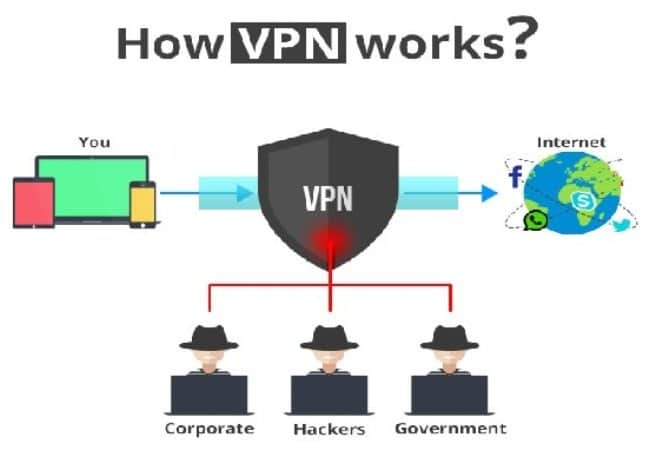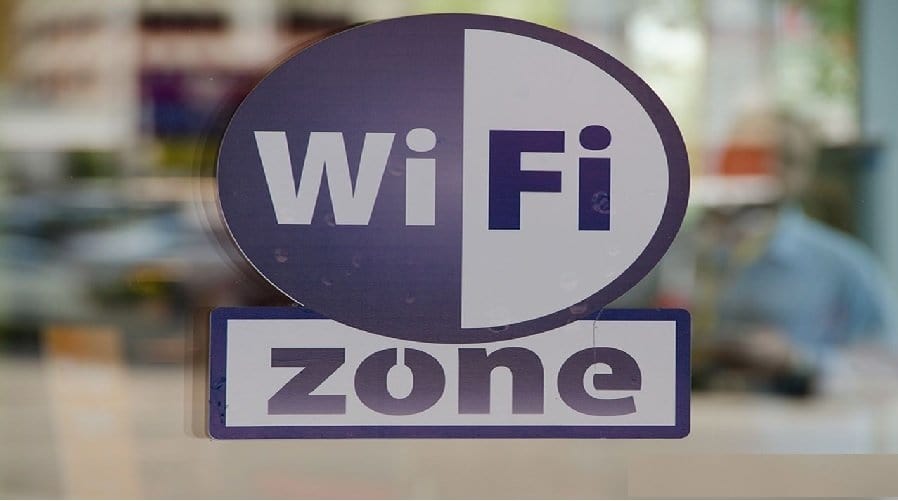Accessing a Public WiFi Hotspot? Read this first.
Who doesn’t love the convenience of going online at an airport or a restaurant? These days it’s easy to find a WiFi hotspot. They’re all over, so you’re practically never without Internet access.
But by going online at public places using a WiFi hotspot, you could potentially be compromising on the privacy and security of the data stored on your laptop, smartphone or tablet. Everything from your passwords to bank accounts could be at risk.
It’s important you understand the risks involved and learn how to keep your private information safe while using a hotspot.
What’s a Hotspot? A hotspot is a location where a wireless network (WiFi) provides Internet access to the public. It takes a few seconds for people with mobile devices like laptops and smartphones to connect to a WiFi Hotspot.
Public WiFi Hotspot: The Good and the Bad
A public WiFi hotspot is no different from the WiFi you use at home, except that it’s open to hundreds or even thousands of people.
One you’ve opened up the WiFi options on your laptop or phone’s Internet settings, you can search for available WiFi networks, and you can access those that are not secured with a password.
Hospitals, hotels, airports and coffee shops offer free WiFi to people on their premises. In some cases, entire cities like Hong Kong, Helsinki and Tel Aviv have WiFi that can be used by anyone anywhere, including public parks.
But this WiFi hotspot convenience comes with risks of its own. If you’re in an airport lounge waiting for your flight, you decide to use that time to make an important money transfer from your bank account. You login using your username and password, and perform the transaction.
You’re completely safe if everyone else is a nice person and doing what you’re doing – enjoying their free Internet. While that could be the case mostly, make no mistake there ARE a lot of people who think its okay to intrude on your privacy and perhaps use some of your money for their needs.
Heard of hacking? It could be the nice looking young man (or woman) sitting next to you that’s snooping on your passwords and everything you’re doing.
You don’t have to forgo this huge convenience – just understand the little things that can keep your information safe anywhere. Protect yourself.
Disable WiFi
A very simple thing not many follow. Keep your WiFi turned off at all times when you’re not using it, especially when you’re outside. In fact, after logging out, it’s better to tell your device to forget the WiFi network.
According to McAfee, some mobile apps like Twitter, Skype and other instant messaging apps may be using local hotspots and you don’t even know it. So it is advisable to turn off your WiFi.
Enable Firewall
By default, most operating systems have the firewall “on.” However, when you’re at home or office, you may be used to keeping the software firewall on your device disabled, as you use your router as the firewall. But when you’re accessing an open WiFi hotspot, enabling that software firewall becomes critical.
Update Software/Install Security Patches
Don’t put off updating your software when your device prompts you to. This is essential when you’re using public WiFi. In fact, prior to traveling, along with enabling your firewall, make sure your software is updated and all security patches installed.
Look for HTTPS
HTTPS tells you that the website you’re browsing is encrypted and your data is safe, and cannot be read during transmission.
According to Lifehacker: Many sites — including Facebook, Gmail, and others — will [use HTTPS] automatically, but keep an eye on the address bar and make sure the “s” in “https” is always there when you’re exchanging sensitive information. If it disappears, you should log out immediately. Other sites will default to HTTP connections, but support HTTPS if you manually type it in.
Exercise this caution not just with emails, but with all services that require a username and password to log in. Keep a constant watch on the address bar to make sure it remains https all the time.
A word of caution: Even when you find HTTPS, try to avoid using any banking websites and other websites that deal with sensitive financial information, unless it’s an emergency.
Avoid Logging In
Hackers can track your keyboard activity and retrieve your passwords, even though they can’t see them. They will get your password based on your keystrokes. Use programs designed to hide your password. Try to avoid any online activity that requires you to enter your log-in information at a WiFi hotspot
Use Different Passwords
This is a mistake many of us make. In an attempt to make life easier and to remember all the passwords, we use the same or similar passwords everywhere. By doing this, you’re giving up on security. When you use a WiFi hotspot, hackers can see all the sites you’re visiting, and they will try to find passwords for all those sites.
Use completely different passwords for each website.
Use Mobile Broadband Connection
Just about every smartphone can act as a WiFi Hotspot. The mobile broadband connection on the latest iPhones and Android-based phones like BlackBerry Priv is secure and can be shared with other devices like your laptop or tablet. Use that instead of an open WiFi hotspot, when possible.
Use a VPN
Finally, this is something you should think of, if you travel frequently and are always searching for WiFi hotspots.
A VPN is a Virtual Private Network that is a service that provides you internet through a secure encrypted “tunnel.” That means, all the information you provide and all websites you access go through that secure tunnel. SSL/secure email configuration or not, HTTPS or not, you are secure and no one sharing that open WiFi hotspot with you can see what’s going on in your tunnel.
Find a reliable VPN provider, even if it means paying a little more. Yes, there is a recurring fee attached to a VPN. This option may not be for everybody, but helps those that need to be online all the time working with sensitive data. The fee is certainly worth the security and peace of mind it offers.

Convenience vs. Security
The convenience that WiFi hotspots offer is amazing when you’re out and about with your laptop or phone in hand. As you can see, doing it securely takes a little forethought and planning.
But it’s important. A little knowledge about using a WiFi hotspot and preparation go a long way in keeping your personal and sensitive information safe.

